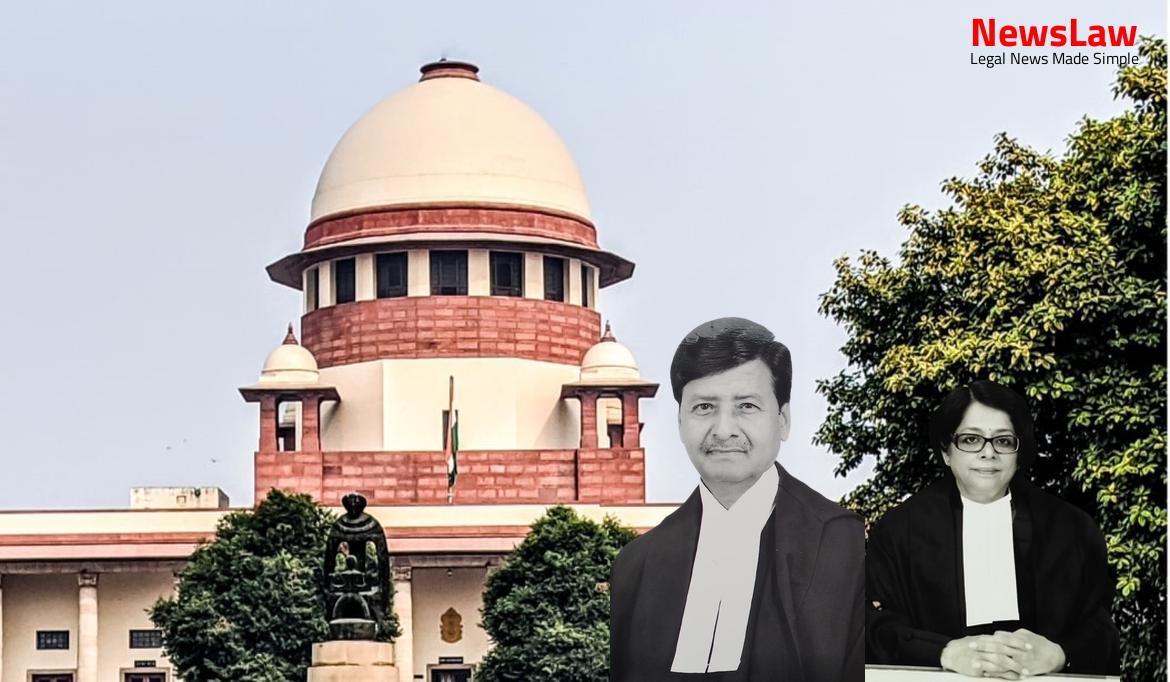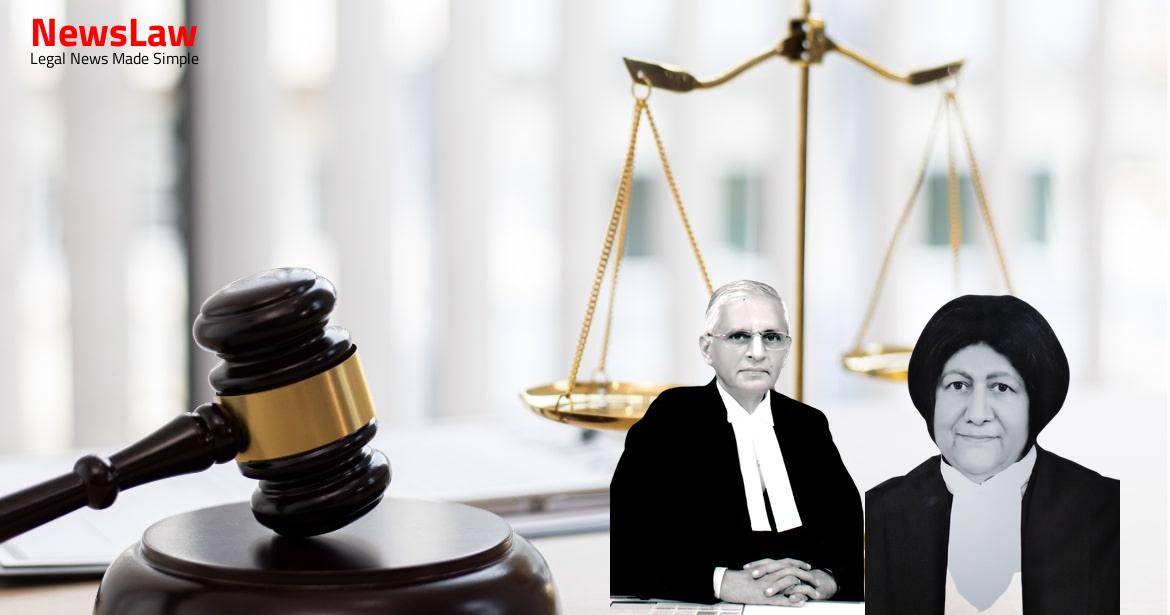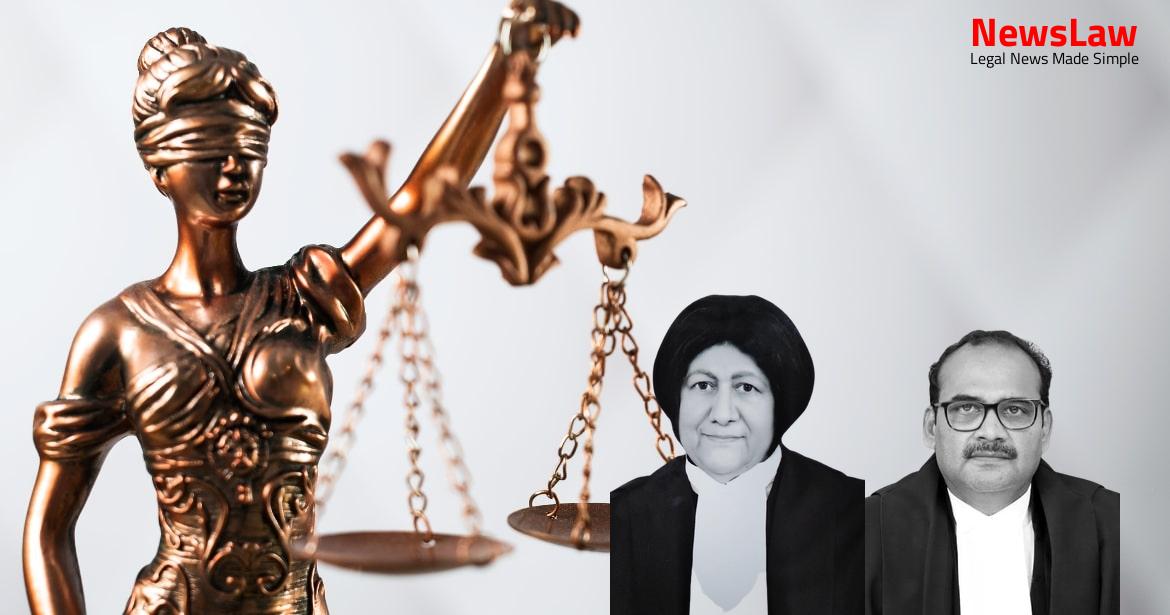Delve into the profound legal analysis of a significant court case revolving around the use of circumstantial evidence in a homicide scenario. Explore how the court meticulously scrutinized each detail to arrive at a definitive conclusion, setting a benchmark for legal proceedings involving circumstantial evidence.
Facts
- Deceased lodged complaints at the Police Station multiple times regarding the accused’s behavior.
- Accused beat the deceased, causing internal injuries and resulting in her death.
- Mrs. Glory found the deceased in the street and learned about the assault from her.
- Deceased was taken to the hospital in critical condition where she was pronounced dead.
- Autopsy report confirmed the cause of death as shock and hemorrhage due to thoracic injuries.
- Accused brought the deceased to the hospital claiming it was a cardiac arrest.
- Prosecution presented 11 witnesses, 17 exhibits, and 4 material objects to support the case.
- Accused arrested pending investigation under Section 174 CrPC.
- House of Mrs. Glory, aunt of the deceased, played a key role in the evidence.
- Accused denied the incriminating circumstances during questioning under Section 313 CrPC.
- Accused charged under Section 302 IPC for murdering his pregnant wife.
- Defense claimed the death was due to a cardiac arrest.
- Accused’s frequent quarrels with the deceased after consuming alcohol were noted.
- Accused found guilty of murder under Section 302 IPC
- Sentenced to life imprisonment by trial Judge in 2007
- High Court confirmed the judgment in 2009
- Marriage of deceased Nirmala Mary and accused appellant in 1997
- Appellant frequently changed rented accommodation, leading to quarrels with the deceased
Also Read: Legal Case: Sentence Reduction in Non-Compoundable Offence
Analysis
- Courts have found missing links supplied by false answers given by the accused.
- Circumstantial evidence should be fully proved, conclusive, complete, and inconsistent with the innocence of the accused.
- Injuries on the deceased were antemortem and caused by a blunt weapon.
- The prosecution relied solely on circumstantial evidence as there was no direct evidence connecting the accused to the crime.
- The circumstantial evidence must point towards guilt unerringly and form a complete chain of events.
- The established circumstances in the case leave no doubt that the accused committed the murder of his pregnant wife.
- Before a case against an accused can be fully established, certain conditions must be fulfilled.
- The circumstances from which the conclusion of guilt is to be drawn should be fully established.
- The facts should be consistent only with the hypothesis of the guilt of the accused.
- The circumstances should be of a conclusive nature and tendency.
- The established facts should exclude every possible hypothesis except the guilt of the accused.
- There must be a complete chain of evidence leaving no reasonable ground for a conclusion consistent with the innocence of the accused.
- The circumstances must be ‘must or should’ established, not just ‘may be’ established.
- The principle for circumstantial evidence was laid down by a three Judge Bench in Sharad Birdhichand Sarda Vs. State of Maharashtra (1984) 4 SCC 116.
- The appellant’s argument that the offence may fall under Section 304 Part II IPC instead of Section 302 IPC was not accepted by the Court.
- The case is based on circumstantial evidence, indicating homicidal violence leading to the death of the deceased.
- The appellant misled the Doctor by falsely claiming the deceased had a cardiac arrest, which was later contradicted by the post-mortem report.
- The nature of injuries on the deceased’s body points towards the intentional murder committed by the appellant, who was the victim’s husband and she was at an advanced stage of pregnancy.
Also Read: Recovery of Misappropriated Temple Funds: Court’s Legal Analysis
Decision
- The appellant was released on bail by the Court on April 6, 2018.
- The bail bonds for the appellant are now cancelled.
- The appellant is directed to surrender within four weeks and complete the remaining part of the sentence.
- Failure to surrender may result in legal action being taken against the appellant.
Also Read: Determining Seniority in Delayed Appointments: Legal Analysis
Case Title: R.DAMODARAN Vs. THE STATE REP. BY THE INSPECTOR OF POLICE (2021 INSC 111)
Case Number: Crl.A. No.-001008-001008 / 2010



